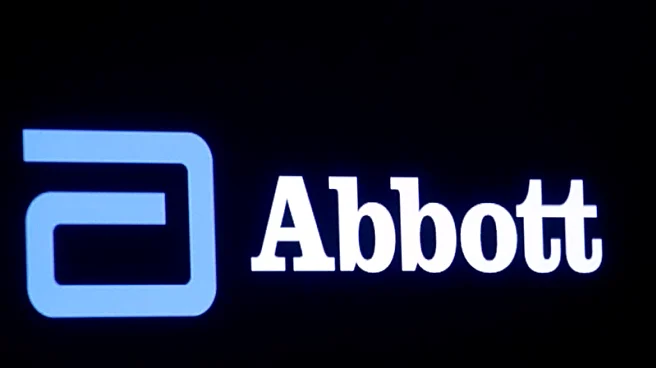(Reuters) -Abbott missed analysts' estimates for third-quarter revenue on Wednesday, as weakness in its diagnostics and nutritional businesses failed to offset strong demand for its medical devices, sending
its shares down 3% premarket.
The company had flagged volatility in the businesses as it navigates a sharp decline in COVID-19 testing demand, new U.S. tariffs, and a freeze on foreign aid by President Donald Trump's administration.
The decision to halt foreign aid has upended the supply chain for medical products and diagnostic tests crucial for fighting diseases including HIV and malaria in some of the world's poorest countries.
Meanwhile, Abbott is also facing pricing pressure from China's procurement program that buys medical devices in bulk at steep discounts.
Total revenue of $11.37 billion for the quarter ended September 30 slightly missed analysts' average estimate of $11.40 billion, according to data compiled by LSEG.
Sales in its diagnostics segment, which sells tests for COVID-19 and diabetes, fell 6.6% to $2.25 billion, missing the estimate of $2.29 billion.
However, its medical devices segment sales rose 14.8% to $5.45 billion, lifted by demand for its continuous glucose monitors and heart devices.
Last month, the Trump administration launched sweeping Section 232 probes into medical device imports, raising the specter of new tariffs and intensifying scrutiny of foreign supply chains.
"Our preliminary assessment is we would not expect to see a meaningful impact." Abbott told Reuters in a statement.
The company also said there is no change to its prior tariff hit expectation of under $200 million this year.
On an adjusted basis, Abbott reported third-quarter profit per share of $1.30, in line with analysts' average estimate.
The company said it now expects annual adjusted profit to be between $5.12 and $5.18 per share, compared with its previous range of $5.10 to $5.20.
(Reporting by Kamal Choudhury and Christy Santhosh in Bengaluru; Editing by Sriraj Kalluvila)










